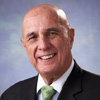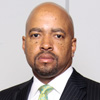Veteran lawyers share their 'aha' trial moments (podcast with transcript)
Podcast Transcript
Stephanie Francis Ward: Litigators usually don’t want trial surprises, but sometimes you can learn from them.
Franklyn Gimbel: When the surprise comes up, you can’t pack your bags and leave. You have to carry on and go to the end of the trial.
Stephanie Francis Ward: I’m Stephanie Francis Ward, and when we return lawyers share some of their aha moments, in both trial and pre-trial work.
Advertiser: This ABA Journal Podcast is brought to you by Westlaw Next. Folder sharing in Westlaw Next enables you to tap into previous research across organizational boundaries like never before, saving you time from reinventing the wheel. Learn more at westlawnext.com.
Stephanie Francis Ward: Sometimes “aha” moments come when your own expectations and prejudices are called into question. Louisiana personal injury lawyer James Williams learned this first hand.
James Williams: Probably my best “aha” moment is a trial I was involved in. It was a personal injury trial. I was representing the plaintiff, and at issue in the case was whether or not the plaintiff was really as injured as she claimed to be. She didn’t have broken bones or any, sort of, injury that you could see. It was all, sort of, a closed head injury and some other things that are hard to ascertain. You really have to believe the plaintiff, or believe the plaintiff’s doctors in order to find for the plaintiff. And so Juror No. 2 in that case was a nurse. And ordinarily I don’t like to have nurses on personal injury juries just because–
Stephanie Francis Ward: And why is that?
James Williams: Just because they tend to substitute their experience for the evidence. And rather than going by what the evidence suggests they say, “oh, well, I know the way it really works,” or “this wouldn’t have happened because I know that there’s some billing thing,” or some coding thing, or something that has nothing to do with the case–it’s often interjected by nurses or other medical professionals. So, I generally try to keep them off of the jury in personal injury cases the same way I like to try to keep accountants or other financial professionals off of business or financial litigation cases.
But, in any event, Juror No. 2 was a nurse and the defendant’s independent medical examiner, IME physician who examined my client and opined that there was nothing wrong with my client–that the injury wasn’t authentic. This person took the stand, and I’m watching the jury and as the doctor is walking to the witness stand Juror No. 2 turns to Juror No. 1 and I can look at her–read her lips, and she says, “I told you that was him.” And I say, “Uh oh.”
And he testifies, and Juror No. 2 is leaning forward. She’s hanging on his every word. She’s really engaged with this witness and I am really, really concerned at this point because again, the entire case comes down to who they believe–the treating physicians and what they say or this IME physician. And as he finishes his testimony he gets off of the witness stand and as he’s walking by the jury box, Juror No. 2 looks at him, waves, and mouths the word, “Goodbye.”
And so I–immediately after the judge leaves the courtroom, I ask the jurors to be excused and I move to strike the juror and I say, “Judge, clearly this woman knows the witness. She didn’t disclose that in void dire. We’ve got to get her out of here, because I am concerned about the connection she has with this doctor.”
The judge brings us in chambers. She says, “Well, Mr. Williams, I think you’re kind of blowing this out of proportion. I’ll bring the woman in and I’ll talk to her.”
The judge brings the woman in, talks to her by herself, she brings the lawyers back in and then the judge says, “Look, I’ve talked to her. I think she can be fair and impartial. I’ve gotten some more information. She does know this doctor, not personally, but she’s worked with the doctor, but I still think she can be fair and impartial.”
I lose it. I said, “Judge, how can you do that? How can you leave her on the jury?” And I fight, like, with everything, to try to get this woman off the jury. And the judge says, “Well, I’ll bring her back in. I’ll ask her some more questions and this time I’ll record so you all can hear and have a comfort level.” And I say, “Judge, that’s unnecessary. We need to get her off right now.”
The judge excuses us, brings the woman in, interviews the woman again, brings us back in and says, “I’d like you all to listen to the recording.”
And she plays the recording and she’s asked the juror, “How do you know the doctor?” And the juror says, “Well, I know him by reputation.”
I stopped the recording. I reach over and stop it and say, “Judge; we don’t have to go any further.” I said, “This is it. We have to get rid of this lady right now. The more we listen the more prejudicing the trial. Let’s go.” And she backs me down and says, “Sit down, Mr. Williams, let’s listen to the rest of it.”
So they push play again and the judge says, “Well, what is his reputation?” And she says, “He’s an A-hole to all the nurses.” And I say, “Oh, my goodness.”
And then she starts–you can hear her start sniffling and her voice starts changing. And the judge says, “I’m sorry, ma’am. Is everything okay?” And she says, “I’m just so upset. I hope I haven’t messed things up for that poor plaintiff.”
And at that point I am–I start frantically arguing. “Judge, you were right. She can be fair and impartial. I don’t know what I was thinking. Clearly she’s a fine juror for us.”
And I, kind of, of course, back myself into the corner because I had argued so vigorously that this juror be excluded.
Thankfully, the judge maintained her original position and was not persuaded by any of my arguing. And so Juror No. 2 did remain on the jury. We did win the case and got a very good verdict. But–
Stephanie Francis Ward: Well, what did the defense say? They must’ve taken up your position after you dropped it, right?
James Williams: Immediately. They immediately took up my position and I said, “Judge,” I said, “you said you could be fair.” I said, “Don’t listen. I’m just the lawyer! You said she’d be fair and impartial. You were right about it all along, just like you didn’t listen to me then, don’t listen to them then.”
And the defendants, of course, were screaming at the top of their lungs to get this juror stricken, but at the end of the day she did remain.
And I learned–I had co-counsel who, really, found the whole thing funny, although I didn’t find it funny at the time. And he was almost doubled over in laughter once he realized that I’d been fighting so hard to get this woman off the jury and she was really on our side.
And I learned from that experience to not be so quick to judge jurors–now, hers was a bit extreme as far as the waving and the, etc.–but to really dig a little deeper into juror demographics and not be so quick to dismiss or accept a juror based on very surface demographic characteristics and really try to look deeper at what those characteristics mean, and not just at some of the very surface stereotypes that we attach to different demographic characteristics.
And I think that certainly while going forward I don’t think I’ve made a misstep quite that big since.
Stephanie Francis Ward: How do you feel about nurses now on your personal injury cases?
James Williams: It depends on the kind of nurse. I ask a lot of questions. I ask questions about their interactions at work, what their responsibilities are. And if it’s just a run-of-the-mill nurse, I tend to be more accepting of them because of their sort of caregiver role. If it’s a nurse that’s in management, I tend to consider those the way I used to consider all nurses. I dig more into their relationships–at work, I mean–with the patients and their approaches to care, things like that–instead of just sort of wholesale dismissing all nurses as bad for your jury, just because I think there’s a certain caregiver mentality that you want that nurses have.
I like teachers on my jury, and through that experience I’ve started to look at nurses a little more closely when they’re in the jury. And I think they have a lot of the same attributes that exist in teachers, which is the reason why I like them. So I’ve changed that position somewhat considerably.
Stephanie Francis Ward: Frank Gimbel has served as both a federal prosecutor and a criminal defense attorney in Milwaukee, Wis. I asked him what lessons he has learned in his career which he would want to pass on to young attorneys.
Franklyn Gimbel: I’ve been doing this for 53 years. I spent five years as a federal prosecutor. I think the one thing that young trial lawyers should know is never underestimate the other side of your case. Try to get a book on the style of the other side of your case if this case is going to go to trial. Try to anticipate what the other side is likely to do and be ready to counterpunch, because trials are not unlike boxing matches, in that each side has an opportunity to score points, but there are often times within the trial where all you can do is block the other guy’s punches.
And I think that if you have a good understanding about the style of the other person in the litigation and you have a reasonable expectation of what’s likely to occur during the course of the presentation of the cause, you’re better prepared for that counterpunch and defense of your position.
Stephanie Francis Ward: Can you tell me a story about how you learned that?
Franklyn Gimbel: Well, I learned it–when I was a young lawyer I did spend five years as a federal prosecutor, as I said. I tried a case one time back in the 1960s where I was prosecuting a person who was ostensibly the head of the Mafia in Milwaukee. The case was being tried in Springfield, Ill., and I learned–on the weekend before the trial was to commence–that the FBI had conducted an illegal electronic surveillance of the defendant in the case. And I was informed of that by an Assistant Attorney General of the United States.
And so the morning that trial was supposed to start in this distant place away from where I lived and where I worked, I made a disclosure to the court that the government had engaged in inappropriate law enforcement behavior, but I had an internal revenue case, it was a tax case, and I asserted to the court that I felt confident that the evidence that had been developed by the Internal Revenue Service was not impacted–whatever information the FBI had picked up and that I wanted to have a motion to suppress.
The lawyer, who was the lead lawyer on the other side, was a very cagey experienced lawyer from Chicago. And he was not kind. He was not gentle. He was a very aggressive opponent, and I–it seemed in that case–even though I had all the resources of the government and the defendant in the case had his own personal resources who were nowhere equivalent to what I had as resources–it was a slug fest for, as it turned out, about three months.
I was eventually successful in the case. But there was never a day when I didn’t feel that I was black and blue at the end of the day. And watching the opponent lawyer deal with the issues that arose in the case and treating, with disdain, me, as a “government lawyer,” was his style.
And it was an effective style up to the point of being successful in the outcome of the case, but it certainly gave me an education about how some cases are not played by the Marquis of Queensbury rules; that rules are kind of flexible in terms of how lawyers treat other lawyers in the courtroom.
And in that particular case I was, at the end of the day, more the target of the other lawyer because he didn’t want to talk about the merits of the case, and he wanted to talk about the sins of the government. And that was a very valuable lesson, and I’ve carried that with me for these 40 plus years since that trial took place.
Stephanie Francis Ward: When I asked Los Angeles business trial lawyer Patty Glaser about HER “aha” moments, I received a response I didn’t expect.
Patricia Glaser: “Aha” moments are–it’s one of those misconceptions about trial work because–especially in the business context (I can’t speak about criminal and personal injury, medical malpractice) but in the business context, 80 percent of what you do for trial is done pre-trial, and creating the witness outlines, and creating the focus and the lines of inquiry so that you get the answers you expect.
So “aha” moments–it’s when you get the moments that you didn’t anticipate that are really good for you and no amount of preparation would have brought you to that point that are, I guess–maybe we have a different definition of “aha”–but “aha” moments.
When you have a lawyer on the witness stand in an attorney malpractice case, you’re representing the plaintiff and you ask him about a particular document and the negligence surrounding his preparation of the document. And his response is something in words, or substance, “Well, I was actually only looking at that at 10,000 feet.” A
nd a natural question that comes to mind–which came to mind here on this particular case–the jury loved this–“Well, do you charge the same billing rate at 10,000 feet as you do on the ground?”
And those were–that’s an “aha” moment because I didn’t expect his answer and he didn’t expect me to follow up and the jury, of course, loved it–being they don’t like lawyers to begin with, probably. So it was an “aha” moment. Most peoples’ testimony, I could predict for you–even when I’m cross-examining them I know what they said in deposition, and you typically like to stick to that as much as possible. And then every once in a while as you get older you can sort of know when to take the risk, even though it’s not in the game plan, and when not to take the risk.
So when somebody is on the witness stand and they directly contradict answers to interrogatories and you’re ready with that. Those are “aha” moments.
There are moments in a deposition where somebody says something to you that surprises you based on the documents you’ve reviewed, pleasant surprise, I mean; obviously sometimes there’s an unpleasant surprise, but I’d rather have it be in depo than trial. And those moments are wonderful. And then you get the answer and you quickly move on because you can’t believe that you just struck gold.
Stephanie Francis Ward: And you quickly move on because you want just enough, but not enough for them to retract–is that right?
Patricia Glaser: Absolutely. I took a deposition the other day, and I decided the particular order of questions and instead of giving the guy time–it was a sophisticated guy–time to warm up, I immediately went for the very essence of my case. And he gave me an answer, and he blurts out an answer, and there’s a break–he talks to his lawyer an hour later. And then he comes back and he says, “You know that answer I gave? I want to change it.” OK, fine. I think that’s stupid, but that’s what he did.
[laughter]
So, yeah, there’s–but part of me knows–again, just like trial preparation, depo preparation–people think they can just wing it, and that’s just a mistake.
Stephanie Francis Ward: Thanks to all our participants for sharing their insights with us. We hope you find their tips valuable.
Advertiser: This ABA Journal Podcast is brought to you by Westlaw Next powered by WestSearch, the world’s most advanced legal search engine delivering the best results in seconds. Learn more at westlawnext.com.
Litigators usually don’t want trial surprises, but sometimes you can learn from them.
“When the surprise comes up, you can’t pack your bags and leave,” says attorney Franklyn Gimbel. “You have to carry on and go to the end of the trial.”
In this month’s podcast, ABA Journal reporter Stephanie Francis Ward interviews three veteran trial attorneys to glean what “aha” moments they’ve experienced, in both trial and pretrial work.
In This Podcast:

Franklyn Gimbel
Franklyn Gimbel is a partner with Milwaukee’s Gimbel, Reilly, Guerin & Brown. The criminal defense lawyer has been in practice 53 years.

Patricia Glaser
Patricia Glaser is a partner with Los Angeles’ Glaser Weil Fink Jacobs Howard Avchen & Shapiro. The business trial lawyer represents major studios, financial institutions and high-profile public figures.

James Williams
James Williams is a partner with Louisiana’s Gauthier, Houghtaling & Williams. This personal injury lawyer has reportedly won more than $100 million in verdicts and settlements.



